
Is our economy headed for a recession?
Dear Subscriber,
Welcome to this fourth edition of the “Upper West Side Real Estate Market Bulletin”, a monthly digital newsletter that covers the state and direction of our local real estate market. It will (1) focus on identification and evaluation of the principal forces that are propelling our market, and (2) be presented in plain and simple language hospitable to our lay readership.

Market Summary
Our real estate market has been sluggish for months, largely because of escalating interest rates and persistently high inflation, and it’s likely that this malaise will continue for the foreseeable future. The Fed’s priority is to reduce inflation from its current 8% level to a target of 2% to 3% to minimize stress on pensioners and other fixed income parties.
Inflation
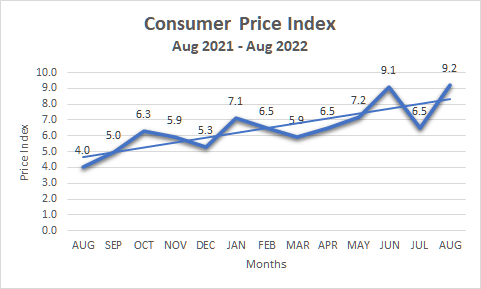
Inflation rates remain stubbornly high. But, the Fed’s way to fight inflation is to raise interest rates: so far this year two rate increases of abut 0.75% each have already been implemented, and a third increase is currently under consideration. As you can see on the graph the US CPI has doubled in the past year and appears to be trending even higher, unfortunately putting upward pressure on mortgage rates, much to the detriment of the real estate market.
Mortgage Rates
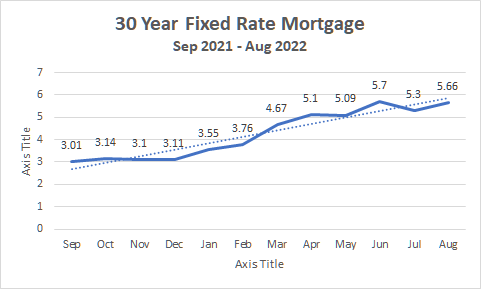
Mortgage rates have virtually doubled over the past year, largely because the Fed, trying to stimulate a Covid-19 stricken economy, pumped excessive amounts of money into the economy, causing demand for goods to exceed supplies and prices to escalate. Realizing its error, the Fed has since reversed its easy money policy but has yet to ease mortgage rates, sustaining the drag on our real estate market.
Consumer Confidence
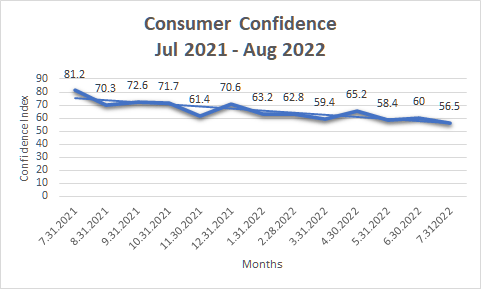
The Consumer Confidence Index (CCI) is a leading indicator which foretells the collective consumer attitudes about the US economy in general and its associated impact on employment, purchasing power and savings. As an index, values above 100 are considered to be positive attitudes and below100 to be negative. The graph presents a seriously worsening negative attitude among consumers and foretells the likelihood of a recession.
What do the tea leaves say?
For our purposes, the tea leaves are the graphs of UWS “Median Sale Prices” and the “Supply of Open Listings”. Both of these key metrics indicate a continuing softness since the “Median Sale Price” hit an inflection point in February, following a downward trend since. “Open Listings (Supply)” shows a continuing negative slide, indicating that property sellers are reluctant to sell their properties during periods of weakened pricing. August data confirms that trend.
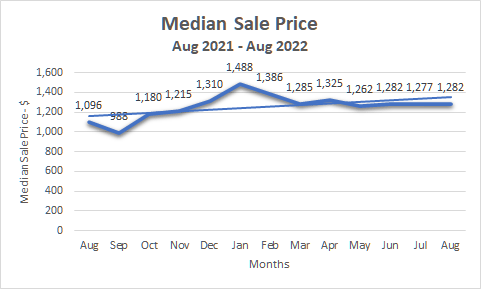
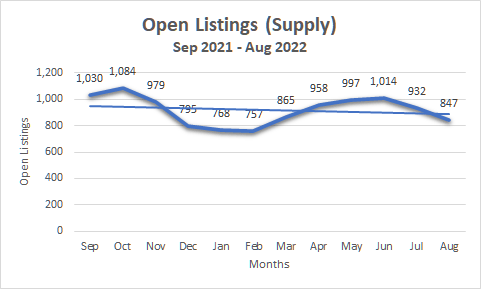
Are you considering buying or selling an apartment this year? If so, know that we’re facing a volatile economy that could shift in the wrong direction at any moment, but this is not all bad news. Some very good deals can be scored in a down market providing that one is vigilant, adequately prepared and resourceful. If you’re interested in learning more about this option, just click on the link below to review methods for identifying and transacting exceptional down market deals.
Thanks for your interest and stay tuned!

Data provided by Urban Digs










Frankly I am sure it is the crime in our beautiful city.